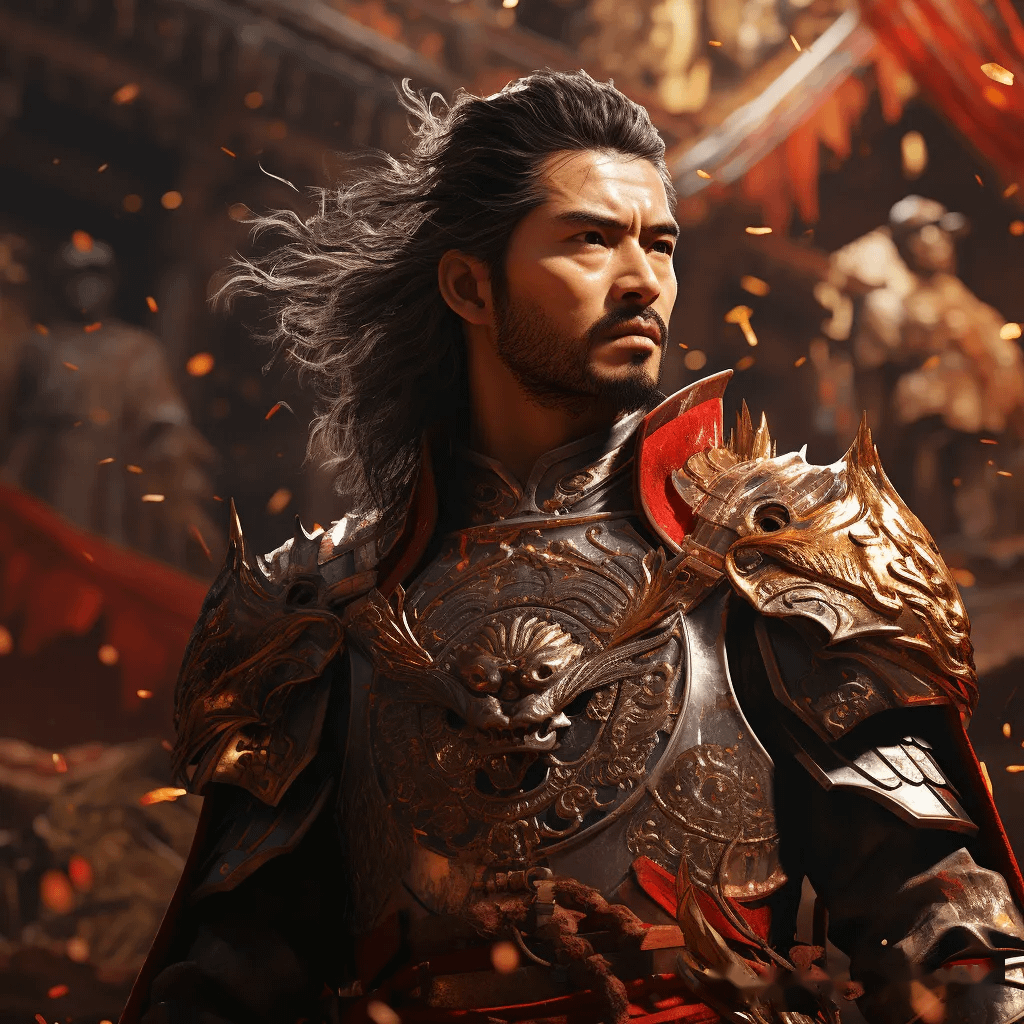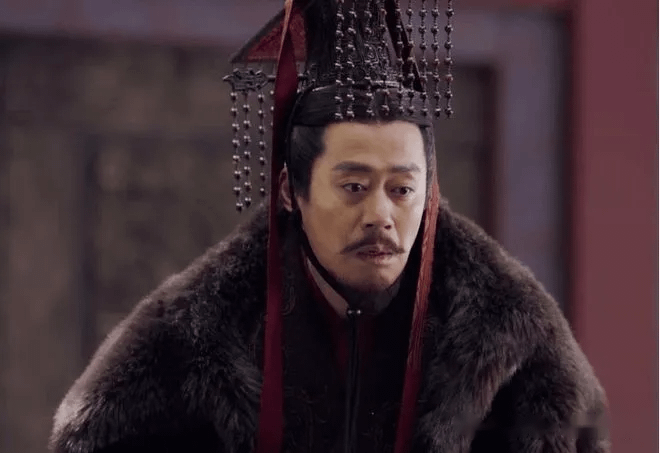After the Battle of Changping in ancient China, the main force of the Zhao army was nearly wiped out. Meanwhile, to the north, there was a fierce nomadic tribe called the Xiongnu, who were as annoying as flies. It is important to note that during the reign of King Wuling of Zhao, the Xiongnu were the elite among the Three Hu tribes and were not inferior to the Qin state. If these nomads were allowed to ride south, not only would Zhao be doomed, but all the other states in China would also suffer. Even the mighty Qin would be powerless to stop them.
Therefore, despite the intense fighting in the Battle of Handan, Zhao could not afford to let Li Mu’s northern army move south; they had to hold their ground at all costs. This was like having a pack of wolves outside—you couldn’t send your watchdogs to chase rabbits.
Fortunately, the Qin state also faced internal strife. Whenever the other states formed an alliance, the Qin army would retreat, giving Zhao a moment to breathe.
Now, time was of the essence. Li Mu needed to deal with the Xiongnu in the shortest possible time. Otherwise, if the Qin army returned, Zhao would be like an egg hitting a rock, shattering completely.
But easier said than done. The Xiongnu cavalry moved like ghosts, appearing and disappearing without a trace, striking and then vanishing, leaving not even a hair behind. While the later Han dynasty could chase the Xiongnu across the grasslands, a small state like Zhao lacked such capability.
Thus, Li Mu had to endure. He had to endure as much as possible and even more when he couldn’t.
Fortunately, King Xiaocheng of Zhao trusted Li Mu to some extent, granting him significant autonomy. After all, Li Mu was a direct descendant of Lord Ma Fu, Zhao She, and was recommended as a promising talent by Lord Pingyuan, Zhao Sheng.

.
The relationship between King Xiaocheng of Zhao and Li Mu was quite good; this historically controversial monarch didn’t seem so dim-witted after all. After all, he had the insight and courage to appoint a crippled man with a disabled right arm as the Great Wall of the north.
According to historical records, Li Mu wielded enormous power in the border regions. Not only could he directly appoint and remove local officials, but he also had control over local tax revenues, which he used as military funds.
With money, everything is easier. Li Mu was very generous to his soldiers, slaughtering a few cattle every day to reward them. He personally taught them horse riding and archery, and those who excelled received even more rewards. The soldiers were happy to serve, so they trained diligently, eager to rush into battle and earn merit.
However, Li Mu’s skill in patience was extraordinary. Despite the high morale of his troops, he was in no hurry to engage. He ordered everyone to guard the beacon towers and sent out numerous scouts to gather intelligence on the enemy. Whenever the Xiongnu attacked, he had all the soldiers and civilians retreat into the fortified cities and strictly forbade anyone from leaving to fight. Anyone who disobeyed this order was executed without mercy.
Over the years, Li Mu became like a turtle hiding in its shell. Whenever the Xiongnu approached, he would light the beacon towers and have everyone hide while watching the Xiongnu curse them from outside the city walls. They didn’t lose any material possessions, but they lost a great deal of face.
At first, the Xiongnu mocked him as a turtle; later, even his own soldiers began to criticize him for being cowardly; and finally, even King Xiaocheng of Zhao couldn’t bear it anymore and reproached him for being so afraid of the enemy.
But Li Mu didn’t care at all. What was face compared to thick skin? The walls of Yanmen Pass weren’t as thick as his skin.

.
A general who can remain unfazed by public opinion and stick to his plan as steadfastly as a mountain is rare in this world. Li Mu was one such person.
Over time, King Xiaocheng of Zhao also struggled to withstand the pressure of public opinion. The state had spent a fortune maintaining the army, not just for Li Mu to train and scout. Zhao desperately needed a victory to boost morale.
So, King Xiaocheng’s old habit of changing generals resurfaced, and he removed the “non-resistant general” Li Mu with a single order, appointing a new general. There is little detailed record of this new general, but he was clearly a brave warrior. Upon taking office, he immediately changed tactics and went on the offensive.
However, this new general made a grave mistake. Dealing with the Xiongnu required more than just bravery; their swift movements were far more flexible than brute force. It was like a bull charging at a nimble snake; despite fierce attacks, the bull might not even catch a glimpse of the snake.
As expected, the Zhao army was run ragged by the Xiongnu, suffering numerous defeats and heavy losses. The border residents could no longer live in peace, constantly fearing the Xiongnu’s raids.
Life became unbearable, and the people cried out, “General Li Mu, please come back, we can’t endure this anymore!”
King Xiaocheng of Zhao also regretted his decision, realizing that Dai Commandery couldn’t manage without Li Mu. After much contemplation, he decided to admit his mistake and sent envoys to invite Li Mu back. But this time, Li Mu was wise to the situation and feigned illness, clearly setting conditions for his return.
The king laughed and said, “What conditions do you have? Just tell me!”
Li Mu replied, “If Your Majesty truly wants to employ me, I must have the same autonomy as before.”
The king had no choice but to agree, “You will have full authority over border affairs, and I will not interfere.”
Delighted, Li Mu bowed and gladly took up his post again. For several more years, he continued with his old strategy: hiding when the wolves came and emerging when they left, remaining unmoved by the fiercest storms.
He was waiting, waiting for his prey to fall into his trap. No matter how cunning the wolves, they were no match for a wise hunter.
Finally, the soldiers’ fighting spirit had been stoked to its peak by Li Mu. “General,” they clamored, “hiding and eating beef every day isn’t enough! We want to kill the enemy, earn merits! We want to beat the Xiongnu until they call us their ancestors!”

.
Li Mu laughed heartily, “Alright, as you wish! Brothers, grab your gear and let’s catch these barbarians in one fell swoop!”
Li Mu carefully selected 1,300 war chariots, 13,000 cavalry, 50,000 infantry, and 100,000 crossbowmen, secretly conducting battle drills to prepare for a fatal strike against the Xiongnu. For a master like Li Mu, it didn’t take a prolonged battle to win. Seizing the opportunity and targeting the enemy’s weak spot could lead to victory in a single blow.
This is precisely what Napoleon meant by, “The whole art of war consists of a well-reasoned and extremely prudent defense, followed by a rapid and audacious attack.” Similarly, Sun Tzu stated, “The skillful warrior first ensures his own invulnerability, and then waits for the enemy’s vulnerability.”
Once the troops were ready, it was time to set the trap. Li Mu released the border people to graze their livestock on the grasslands. Soon, the wind blew over the grass, revealing herds of cattle and sheep, and the sky over the northern frontier cleared up with joyful pastoral songs filling the air.
The desolate grasslands hadn’t been this lively in a long time. The Xiongnu wolves had been enduring hardships for years, and seeing this scene made them feel like starving ghosts who hadn’t eaten for three days. They eagerly demanded to raid and plunder the area.
However, the chief wolf, the Chanyu of the Xiongnu, wasn’t a fool. He cautiously sent a reconnaissance force to probe first. The Zhao army seemed utterly defenseless, scattering at the slightest touch, abandoning thousands of civilians and fleeing in panic.
Hearing this, the Chanyu’s greed surged, and he immediately gathered an army of 100,000 wolves, marching south with the vow to ravage Dai Commandery, leaving no living thing behind.
Li Mu smiled, knowing that years of silence and patience had all led to this moment. “Brothers, it’s time to unleash our fury. Let the Xiongnu taste the might of the Zhao cavalry. It’s time to close the net…”
As expected, the Xiongnu wolves swept across the grasslands like a storm, charging headfirst into Li Mu’s trap. What awaited them was not cattle, sheep, and treasures, but the ingeniously crafted “Li Mu Formation.”

.
Historical records clearly state that Li Mu arranged a unique formation designed to counter large-scale cavalry units effectively. He positioned a chariot formation to engage the enemy head-on, while crossbowmen provided continuous volleys. Cavalry and infantry were held in reserve on the flanks and rear, ready to move at the decisive moment. When the Xiongnu cavalry’s charge faltered, Li Mu launched a full-scale attack, with cavalry encircling and trapping the enemy. The entire formation worked like a precision instrument, pinning down the Xiongnu’s 100,000-strong cavalry and crushing them decisively.
When Li Mu moved, he did so with the force of a thunderbolt, overwhelming his enemies with an unstoppable momentum. The proud Xiongnu wolves were utterly defeated, their entire cavalry annihilated. The Chanyu barely escaped with his life, and for over a decade, the Xiongnu did not dare approach the Zhao borders.
Seizing the opportunity, Li Mu advanced deeply into the grasslands, conquering the Chanyu, defeating the Donghu, and subduing the Linhu. He achieved unprecedented feats, continuing the legacy of King Wuling of Zhao. With the border threat eliminated, the dark clouds dispersed. The wavering state of Zhao received a powerful boost from Li Mu’s victory, bringing hope where there had been despair.
Li Mu’s resounding victory over the Xiongnu had immense significance for the Chinese nation. It not only extricated Zhao from the dilemma of fighting on two fronts but also provided a model for future Han regimes in their battles with northern nomadic tribes. The strategies of “fortifying border defenses, conserving strength while awaiting the enemy, then striking when the enemy arrived” became standard tactics for future statesmen in repelling northern invaders.




0 Comments